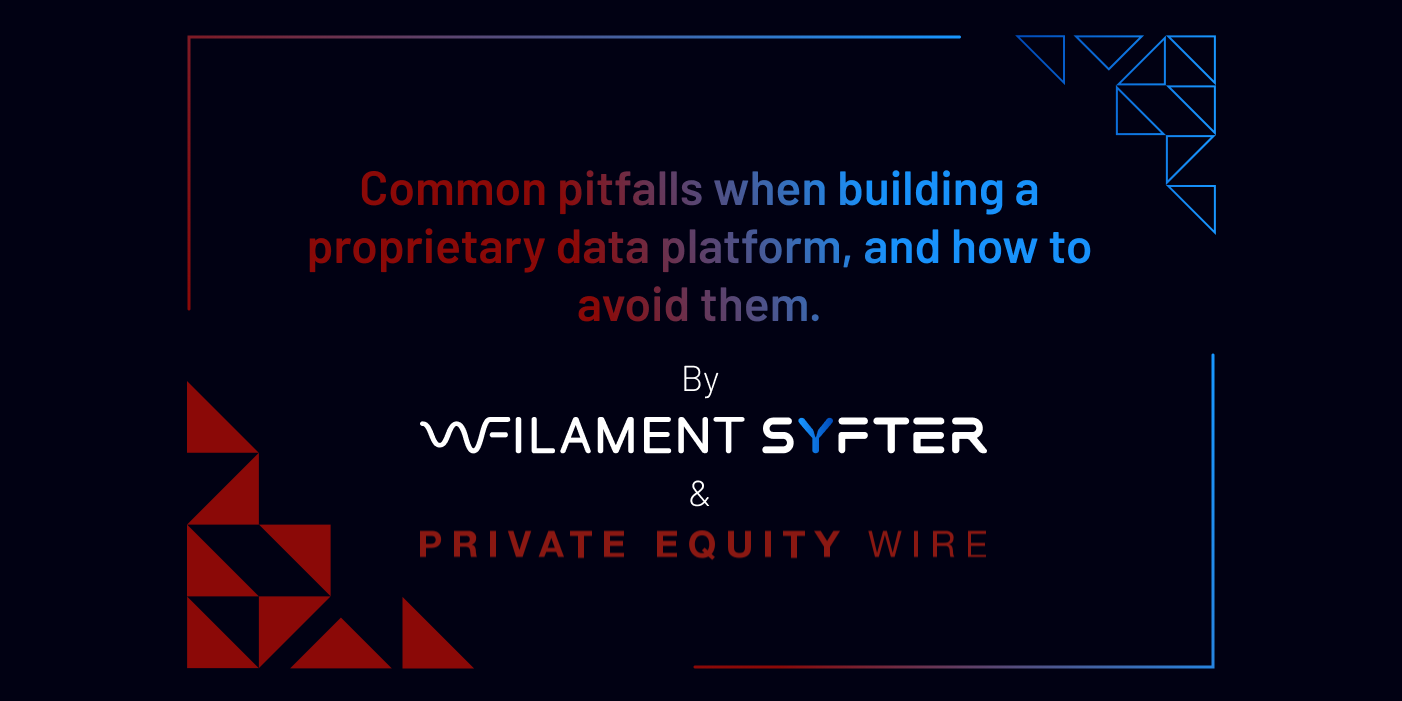Common pitfalls when building a proprietary data platform, and how to avoid them
A persistent challenge for any PE firm is managing and utilizing its data to deliver competitive advantage through superior deal origination and shadow monitoring. Most are well along a first or even second CRM implementation journey. Money is being spent on selected external data. There has been some experimentation using CRM as an integration platform, or tools like Power BI or Tableau to visualize that data. Thought leadership articles tell you that leaders in the field are working with data lakes and AI, yet many firms remain dissatisfied with the current state of their data management capabilities. Why is this?
Buy vs build is not as simple as it sounds
Very few firms will attempt an entirely bespoke build as the cost, time, expertise, and risk are prohibitive. A logical approach is to choose a generic data integration platform and customise it in-house or using a consultancy. Yet there are hidden pitfalls here, as private markets data and workflows are unique versus the generic tools built for cross sector enterprise clients. PE firms end up with a much bigger customisation project than they envisaged; private markets data types and workflows are shoe-horned into a platform that’s poorly suited, and most of the features that attracted them in the first place end up redundant or replaced. You need a platform that was built with PE in mind from the offset, implemented by people who work with PE data and use cases every day.
Pick the right tool for the job
Many CRM implementations start with the goal of being the single source of truth for the private company universe being monitored. This is possible but only works if the wider data ecosystem and business processes are mapped first. How many data sources are you ingesting, how is each structured, how will you match data of varying quality, and how will you manage user and system-generated updates? It’s likely you’ll end up with a complex web to manage, and this is not what a CRM system is good at. Find a partner who works alongside your CRM, enhancing the data and taking the pain out of those data management tasks. Then your CRM can be as good as you hoped.
AI is not an exact science
This sounds immediately counterintuitive. But the truth is that there are no guarantees that ML models and AI will provide the results you expected or intended. The variables include (but are not limited to) the amount and quality of data available to train models, how precise the objective is and how long you allow to refine and learn.
You need data scientists who have done this before, with firms like yours. They will guide you in setting suitable objectives and advise you on any data limitations. They will design a programme to ultimately deliver the best possible outcome.
At Filament, we work with PE firms daily and have over seven years’ experience working with private market data. Our Syfter Data Integration and AI platform provides the tools to start delivering value within weeks, not months, working alongside your CRM project.
By Phil Westcott
Founder and CEO, Filament AI






